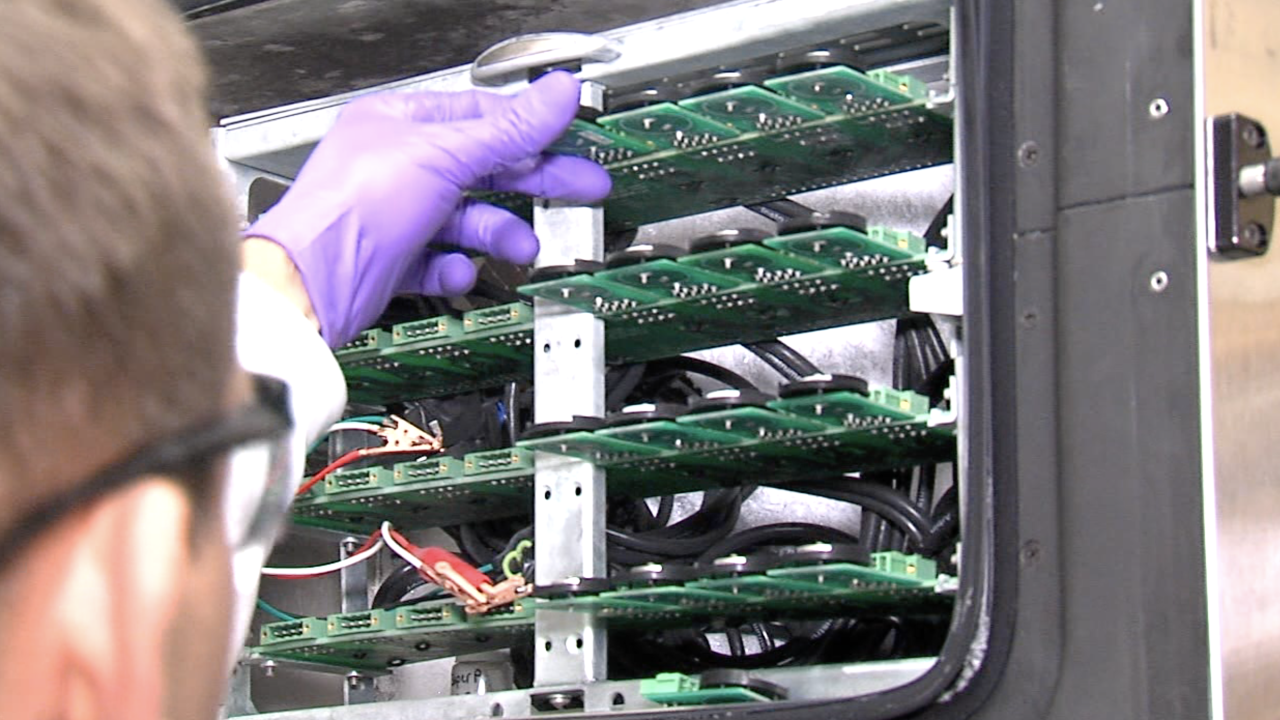WEST LAFAYETTE — Purdue University researchers are working to make your gadgets and gizmos run more efficiently.
They're using sodium carbonate, which is really similar to the table salt we use every day, to make batteries that can power things like our key fobs, golf carts and even our homes.
“So these are the coin type of cells. We make hundreds of them daily and we do have the capability to charge and discharge up to 200 daily,” Vilas Pol, a professor of chemical engineering at Purdue, said.
They are testing these batteries to see if sodium carbonate can be a good substitute for lithium batteries.
“This is a big thing and it’s going to become bigger as we are running out of lithium in the world,” Pol said. "We need something in between that has reliable energy density."
For years, Pol has been working to find an alternative to lithium batteries. Pol said sodium carbonate is 1.000 times more abundant and it’s inexpensive compared to lithium.
“We have sodium [and] salt everywhere on the Earth, any countries. For example, lithium is only available in a few countries; that includes Bolivia, Chile and a few others but sodium is everywhere, and it is inexpensive, and it will be there forever, so why don’t we use sodium instead of lithium?” Pol said.
He said per ton sodium costs $250, while lithium costs $7,000.
“Sodium ion batteries will be 20% cheaper than lithium ion batteries,” Pol said.
However, there is a downside to sodium carbonate batteries.
“The sodium element is three times heavier than lithium, so the battery would become slightly heavier,” Pol said.
While its similar to table, salt sodium carbonate is not safe for us to consume.
Researchers are hoping to one day use these batteries to power your home, your car and other items.
-

Boone Power asks customers to conserve electricity amid regional grid stress
Boone Power said the advisory was not tied to local growth or problems, but to a broader regional grid situation managed by MISO.
Volunteers needed for Indy Snow Buddies
The Indianapolis Department of Public Works is looking for volunteers for the Indianapolis Snow Buddies program.
St. Vincent ER doctor warns of rising winter storm injury cases
This winter storm isn't just making travel tricky — it's sending more people to the emergency room with weather-related injuries.
How does this winter storm measure up to the Blizzard of 1978 in Indiana
For long-time Hoosiers, when snowstorms are in the forecast, the Blizzard of '78 comes to mind. Did the storm compare to the historic Blizzard of '78?





